Medical cannabis Thailand legalisation and benefits for patients
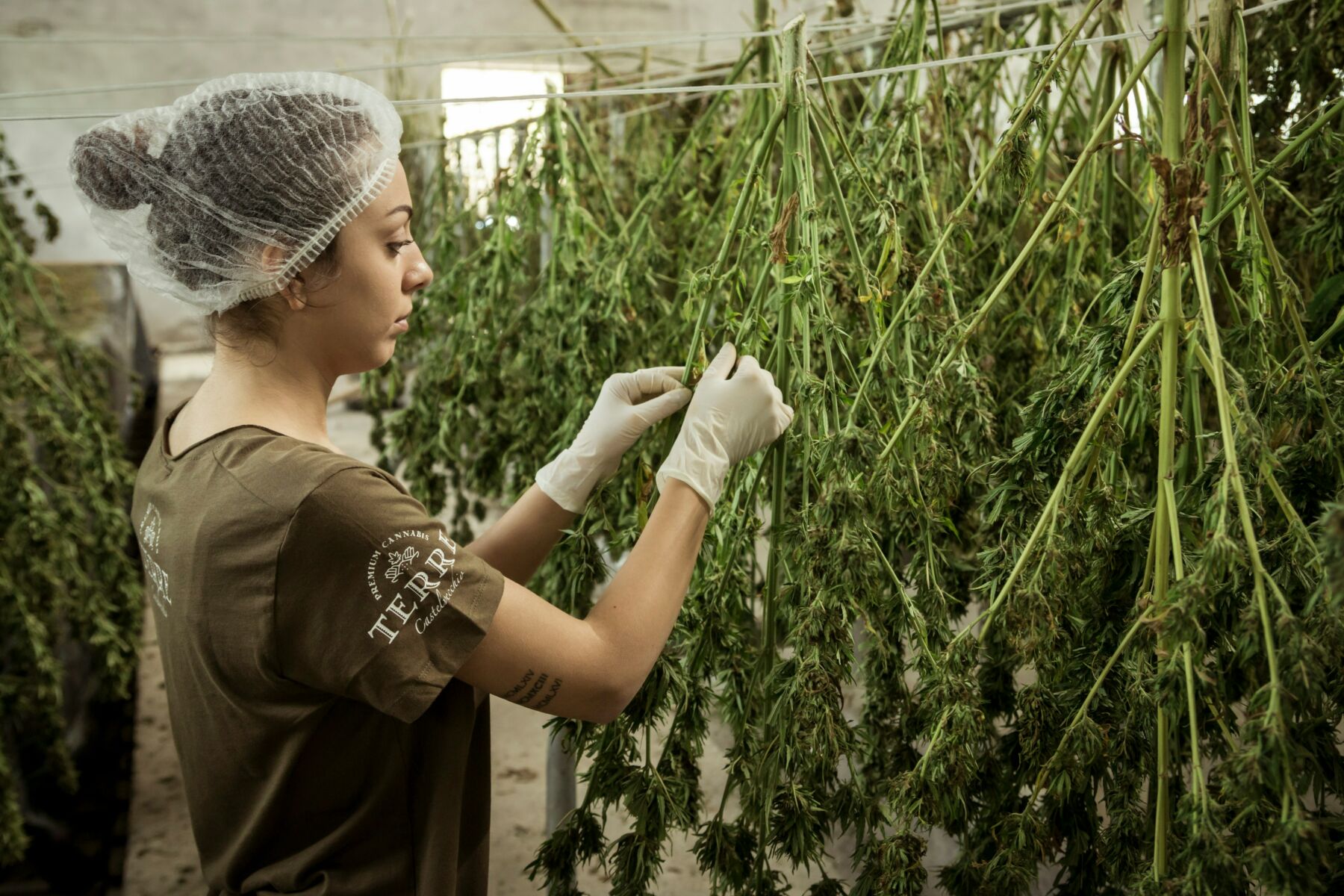
The topic around the medical usage of marijuana in Thailand has escalated in prominence, particularly after it authorised health-based uses in 2018. Thailand is appreciated worldwide for its breathtaking beaches and flavourful dishes and is now additionally acknowledged as a significant entity in the medicinal marijuana industry.
As the government tightened the rules around its recreational use, the emphasis has moved to the health benefits of marijuana. These benefits can range from pain alleviation and stress control to a variety of other potential uses. Continuous exploration and comprehensive licensing prerequisites have placed Thailand at the forefront of the medicinal marijuana sector. Consequently, if you’re interested in how this tropical country is revising its stance on medical cannabis, you’re in the right spot.
Key takeaways
What is medical cannabis?
Medical cannabis refers to the use of the Cannabis sativa plant and its derivatives to indulge certain medical conditions. Legalisation in Thailand in 2018 allows its medicinal use under strict regulations.
Medical benefits of using cannabis
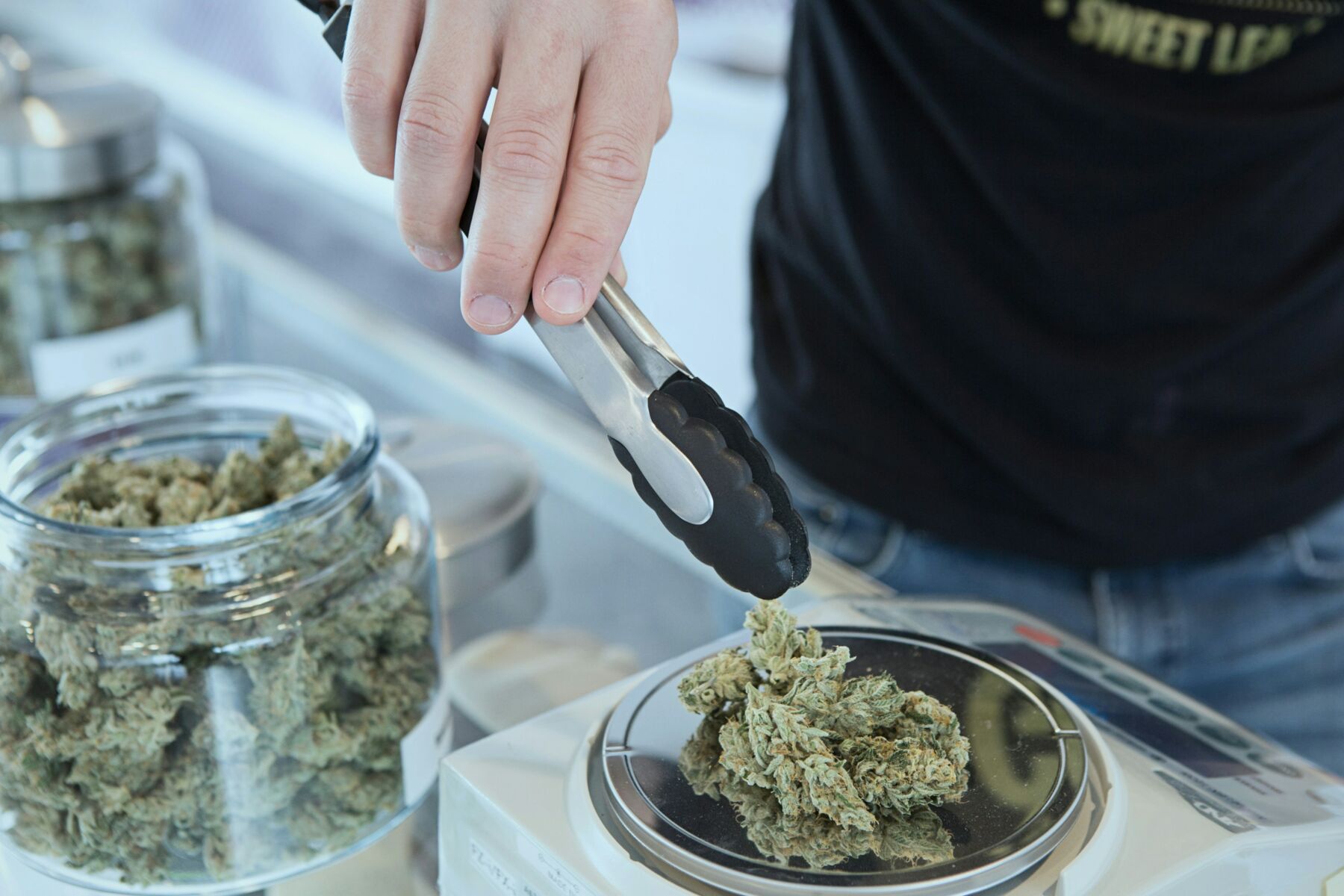
Research has shown that medical cannabis offers a wide range of benefits! It’s great at easing chronic pain, supported by over 10,000 scientific papers in 2017. Using cannabis might help reduce alcohol and opioid use and treat substance addiction. Plus, it can ease symptoms of depression, PTSD, and social anxiety, which can boost overall mental health.
Medical risks of using cannabis
While medicinal marijuana is linked with various advantages, it’s crucial to recognize possible drawbacks. Some people may suffer from symptoms like lightheadedness, cottonmouth, or alterations in hunger. Long-term usage can sometimes result in addiction, especially in those with a past of substance misuse. Moreover, the primary component, THC, can hinder mental performance if overused. Hence, it’s recommended to seek advice from a healthcare professional before starting a medicinal marijuana regimen.
Different types of cannabis medicine available in Thailand
Thailand offers various forms of medical cannabis. You can find dried cannabis flowers, which are often used for inhalation or infusion into oils. Cannabis oils provide a versatile option, suitable for oral or topical application. Pills containing CBD and THC offer a controlled dosage, ensuring precise treatment. These various forms cater to different medical needs and preferences, making medical cannabis an adaptable treatment option in Thailand.
What is the difference between medical and recreational cannabis?
As for medical cannabis, it includes dried cannabis flowers, frequently utilized for inhalation or infusion into oils. Cannabis oils serve as a versatile alternative, suitable for both oral and topical applications. Additionally, pills containing CBD and THC ensure controlled dosages, thereby providing precise treatment. These diverse forms cater to varying medical needs and preferences, establishing medical cannabis as a flexible treatment option within Thailand.
Recreational cannabis, in contrast, faces increasing restrictions. By the end of 2024, Thailand plans to ban recreational use completely. This follows a strict legal framework aiming to prevent misuse and unauthorised cultivation. Individuals involved in recreational use may face hefty fines or even prison sentences.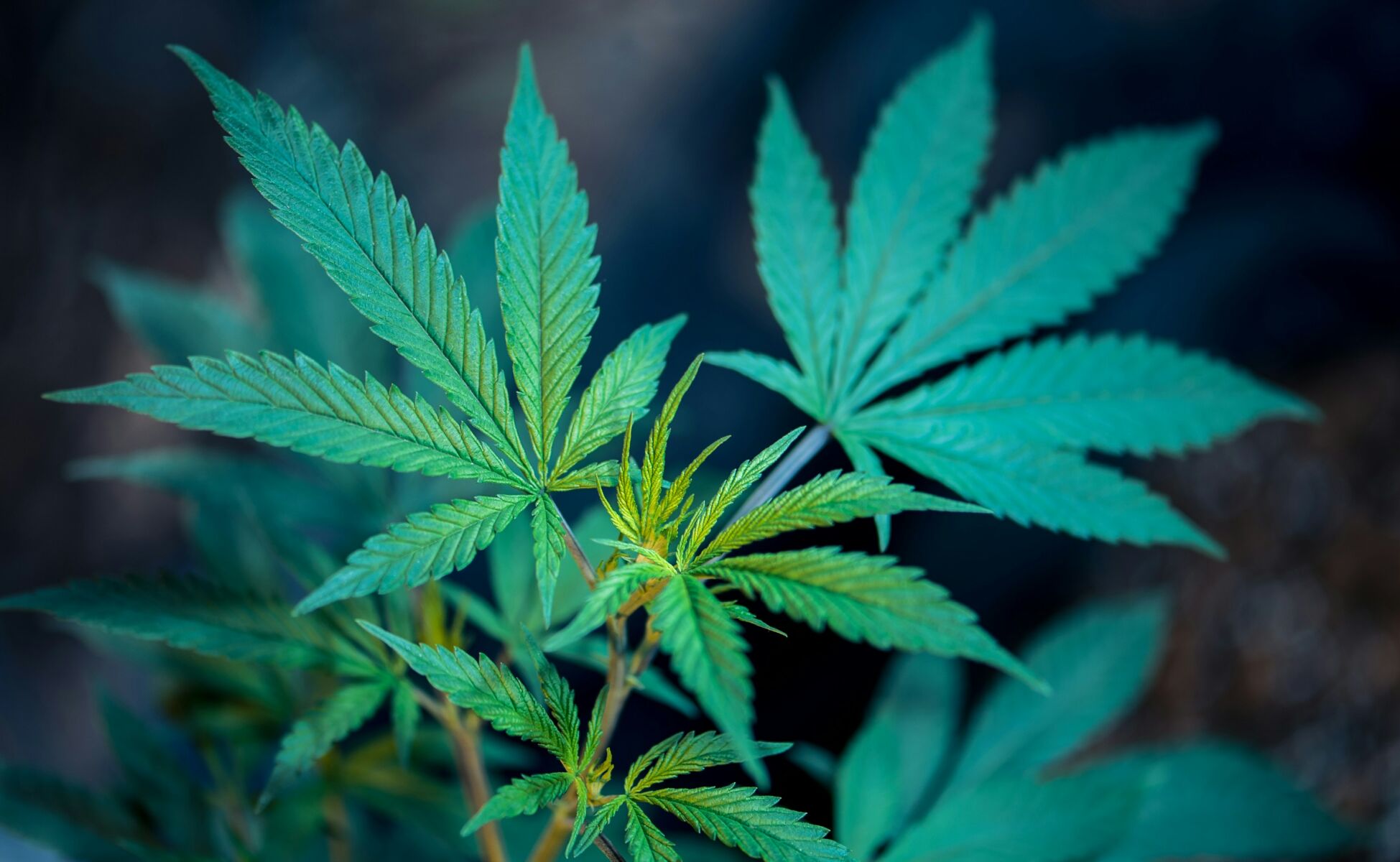
Photo by Rick Proctor on UnsplashComprehending the features and potential advantages of cannabis is essential. Therapeutic marijuana is rich in powerful elements like THC and CBD. THC may contribute to easing discomfort and enhancing appetite, but it could also provoke sleepiness or cause minor memory disturbances. In contrast, CBD is beneficial in mitigating inflammation and stress without the mind-altering impact tied to THC.
Understanding of medical cannabis is still pretty low in Thailand. A National Institute of Development Administration survey found that only 17.5% of people know about its medicinal use. The nation’s regulatory framework supports continuous research and adheres to stringent licensing requirements for cultivation and distribution. These measures ensure that the use of medical cannabis remains effective, safe, and advantageous for patients.
In sum, while Thailand continues to clamp down on recreational cannabis, it remains committed to exploring and utilising the medical benefits of cannabis. This dual approach balances legal control and therapeutic potential.
Medical cannabis in Thailand before legalisation
Cannabis, or “ganja,” has deep roots in traditional Thai medicine. Historically, it was used for its medicinal properties for centuries. Despite this, Thailand criminalised cannabis in 1934 under the Marijuana Act. This act later evolved into the Narcotics Act in 1974. This agreement committed the country to uphold international standards to control cannabis misuse. Such regulations aimed at maintaining control over cannabis consumption became stricter.
These legal frameworks curtailed both recreational and medical cannabis use in Thailand for decades. Nonetheless, the historical use of cannabis in traditional medicine persisted among some communities. This shift acknowledged its historical medicinal applications while aligning with international controls. Before modern regulations, access to cannabis was stringent and limited, highlighting the drastic change in policy over recent years.
Medical cannabis in Thailand after legalisation
Medical cannabis in Thailand revolutionised patient treatment options post-legalisation in February 2019. The Narcotic Act (No. 7, 2019) marked Thailand as the first Southeast Asian nation to legalise cannabis for medical use. Under this law, a 90-day amnesty period they were allowed individuals possessing marijuana for medical purposes to declare it without penalty.
Researchers have identified varying consumption patterns among Thai patients. A cross-sectional study using respondent-driven sampling revealed many consumers reported perceived positive results, despite a lack of scientific backing. However, obtaining medical cannabis from illegal sources remains a concern for product safety and quality.
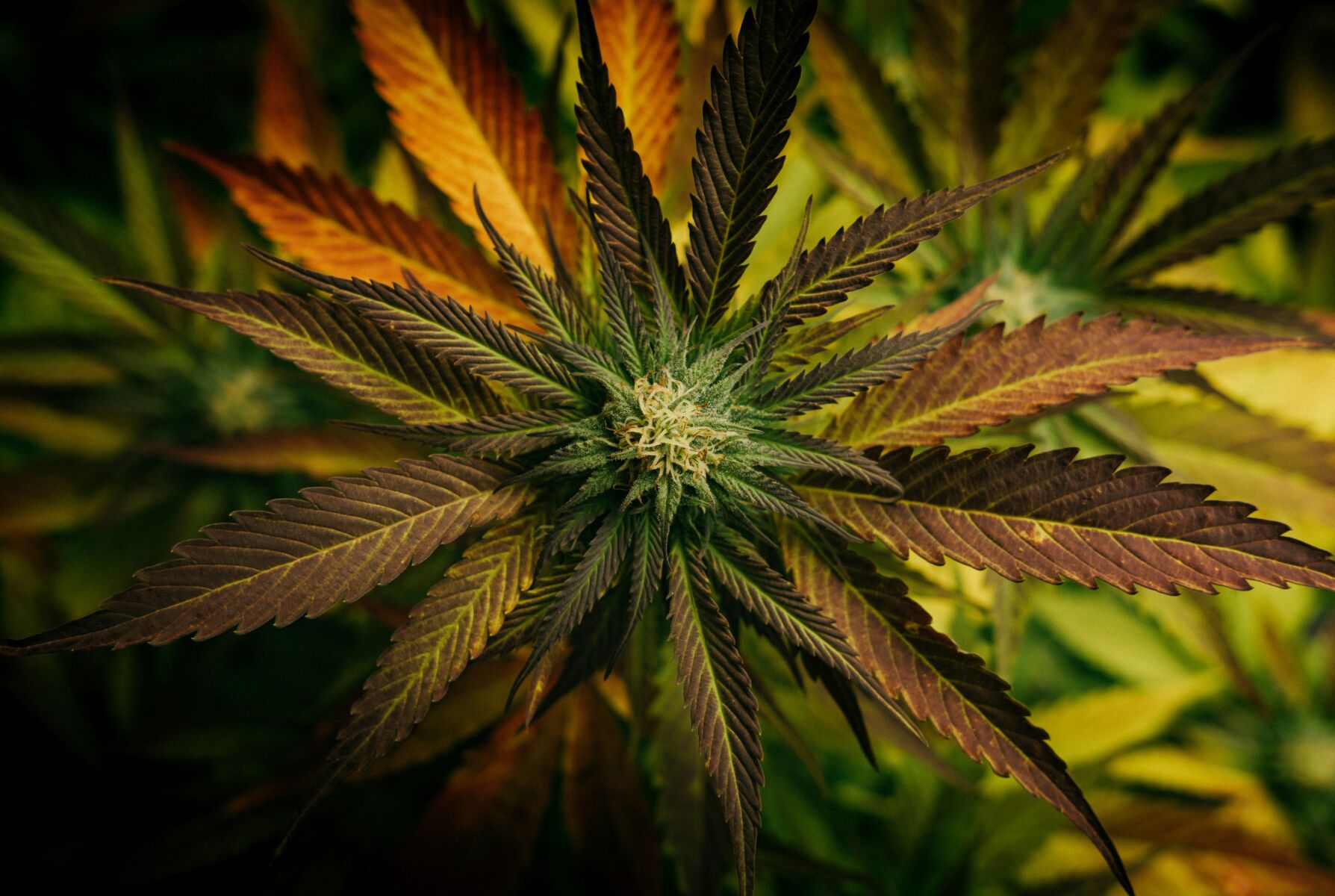
Strict licensing requirements govern the cultivation and distribution of medical cannabis. The government ensures regulated practices to maintain quality control. By enforcing tight regulations, Thailand aims to prioritise patients’ health and safety.
Cannabis remains accessible primarily for medical and research purposes, as stricter laws limit recreational use. The Thai government plans to ban recreational cannabis by the end of 2024, with potential fines and prison sentences for unauthorised use and cultivation.
Efforts to educate and research continue to change. Thailand seeks to harness the therapeutic potential of medical cannabis, aligning historical medicinal value with global standards. Enhanced focus on medical applications addresses conditions like chronic pain and epilepsy, offering new hope to patients.
Public perception and policy around medical cannabis have seen positive evolution, driven by legalisation and ongoing research. Cannabis enthusiasts and advocates push for broader acceptability and a deeper understanding of its benefits. Finally, the aim remains to ensure safe and effective medical cannabis usage within a structured legal framework.
Top 5 hospitals or clinics in Thailand to visit for medical cannabis
You can find top-notch medical cannabis treatments at various hospitals and clinics across Thailand. Here’s a list of five leading institutions:
1. BNH Hospital
Address: 9/1 Convent Rd, Silom, Bang Rak, Bangkok 10500
Opening hours: 24 hours
Known for its BLOOM UP by BNH Clinic, it offers advanced medical cannabis treatments. They combine modern and traditional medicinal practices to provide thorough care.
2. Sawasdee Clinic
Address: 47 Phahon Yothin 63 Alley, Anusawari, Bang Khen, Bangkok 10220
Opening hours: 8am – 5.30pm
Sawasdee Clinic offers personalized treatment plans tailored to individual needs. It integrates traditional and modern medicine, focusing on cannabinoid-based therapies.
3. Galya Rajanagarindra Institute
Address: 23 Phutthamonthon Sai 4 Rd, Thawi Watthana, Bangkok 10170
Opening hours: 6am – 4.30pm
Galya Rajanagarindra Institute uses medical cannabis for alternative therapies, particularly for mental health conditions. It’s a leading institution for psychiatric care in Thailand.
4. Thai Traditional and Integrated Medicine Hospital
Address:693 Bamrung Mueang Rd, Khlong Maha Nak, Pom Prap Sattru Phai, Bangkok 10100
Opening hours: not given
Thai Traditional and Integrated Medicine Hospital provides a wide range of services, including traditional Thai medicine and medical cannabis treatments. Their focus is on the responsible use of cannabis in medicine.
5. Functional Medicine Clinic at BBH Hospital
Address: 11 Soi Sukhumvit 39, Khlong Tan Nuea, Watthana, Bangkok 10110
Opening hours: 24 hours
Functional Medicine Clinic at BBH Hospital offers personalized cannabis therapy options. The clinic blends modern and traditional medicine for tailored treatment plans, making it a preferred choice for many.
These hospitals and clinics provide high-quality medical cannabis treatments. Whether you’re a patient with a medical condition, a healthcare professional, a cannabis enthusiast, or an advocate, you’ll find tailored services that meet your needs.
How to get a medical cannabis license in Thailand
To get a medical cannabis license in Thailand, you’ll need to follow a structured process governed by the Thai Food and Drug Administration (FDA).
First, you must incorporate a Thai Limited Company. Foreigners must partner with a Thai shareholder for this entity. Next, notify the Thai FDA about your cannabis cultivation sites. There isn’t a specific license for cultivation; you only need to notify the FDA.
You’ll then need to apply for several licenses. For growing and production of cannabis, each cultivation site needs individual approval from the FDA. For selling cannabis flowers, obtain a distribution license from the FDA. Ensure cannabis-derived products comply with FDA guidelines on THC content. For importing cannabis seeds, you’ll need approval from the Department of Agriculture.
Pros and cons of medical cannabis in Thailand
| Factor | Pros | Cons |
|---|---|---|
| Medical Benefits | Studies show relief from cancer treatment side effects, eases depression, chronic pain, and MS symptoms | Limited research for effectiveness in various conditions |
| Accessibility | Easier for patients with prescriptions to obtain medical cannabis | Strict regulations for growing and distribution |
| Future Potential | Potential for new treatments for various conditions | |
| Legal Status | Medically legal, potential confusion with recreational ban (2024) | Strict penalties for unauthorized use |
| Side Effects | Dizziness, fatigue, impaired coordination | |
| Doctor Expertise | Important to consult a doctor knowledgeable about medical cannabis | |
| Drug Interactions | Can interact with other medications |
Common medical uses of cannabis in Thailand
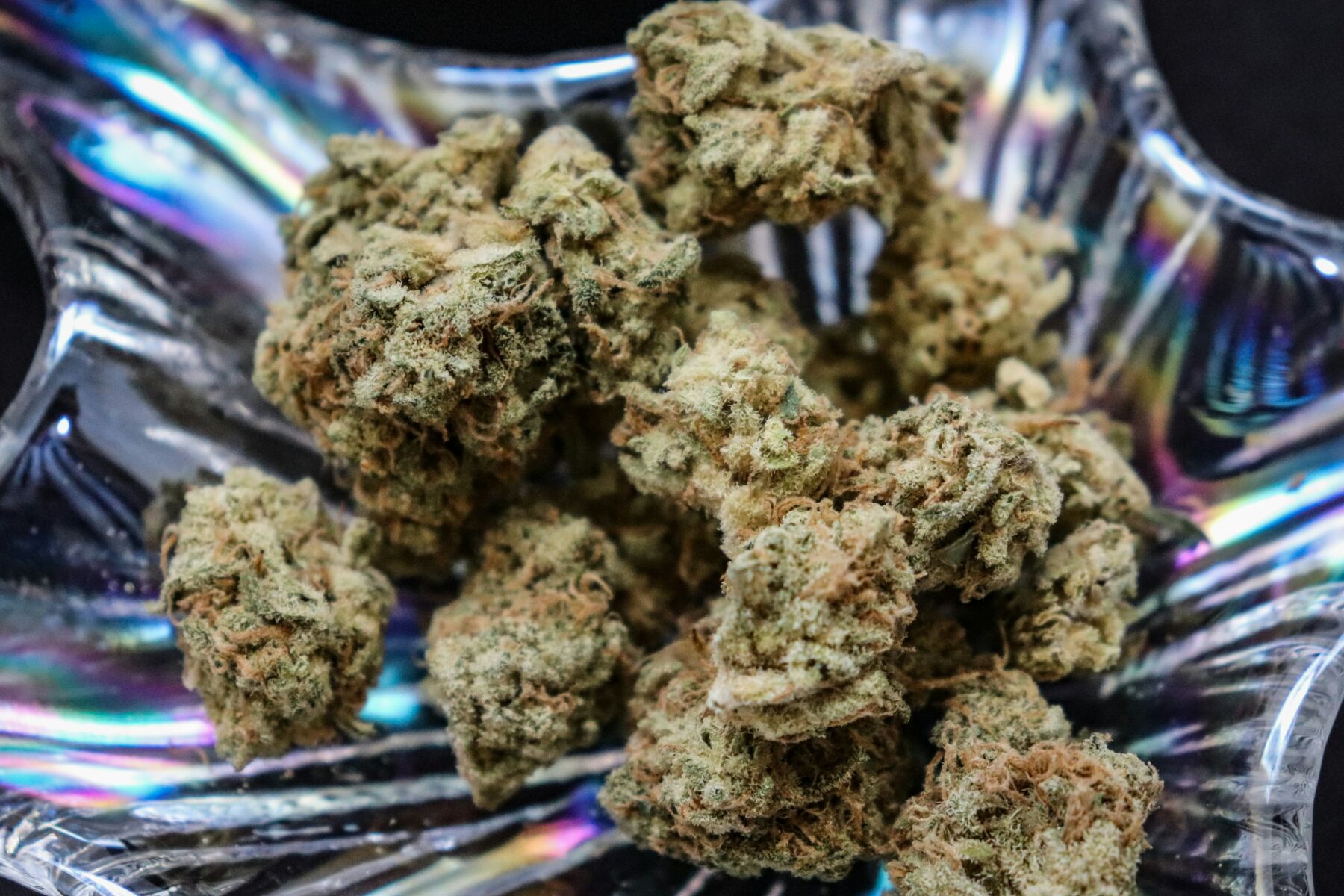
Thailand’s medical cannabis framework supports the therapeutic use of cannabis for various conditions under strict regulations, ensuring safety and efficacy.
| Conditions | Descriptions |
|---|---|
| Insomnia | Treatable with CBD, which offers sleep promotion without psychoactive effects. |
| Nausea and vomiting | Somewhat effective in controlling chemotherapy-induced nausea and vomiting, inhaled forms provide quicker relief. |
| HIV/AIDS | There are mixed results: some are used for pain and nausea associated with the condition when conventional medications lack effectiveness. |
| Pain | Inconsistent evidence, but inhalation methods offer faster pain relief compared to oral products. |
| Neurological conditions | Shows promise in treating epilepsy and multiple sclerosis, with regulations ensuring high-quality products. |
| Mental health | Under research, some findings suggest benefits for anxiety and PTSD, but caution is advised due to potential psychoactive effects. |
Perspectives on medical cannabis in Thailand
Thailand’s acceptance of medical cannabis since 2018 has positioned it as a pioneer in Southeast Asia. Significant regulatory changes have shaped the view, catering specifically to medical and research purposes.
Patient experiences and outcomes
Patients in Thailand, seeking relief via medical cannabis, often encounter limited accessibility to legal sources. Most end up obtaining their cannabis through illegal means due to regulatory constraints. Despite these challenges, many users report positive outcomes, specifically for conditions like chronic pain and neurological disorders.
A study highlighted various consumption patterns among patients, yet many lacked scientific backing. Even so, users held a positive perception of medical cannabis’s effectiveness. This reflects a crucial aspect of Thailand’s medical cannabis scene: while legal avenues remain restricted, the demand persists due to perceived benefits.
Patients express a need for greater accessibility to licenced products. Increased legal options could improve outcomes for numerous conditions, reinforcing the therapeutic potential of medical cannabis.
Healthcare professionals’ insights
Healthcare professionals in Thailand express a strong interest in formal educational opportunities regarding medical cannabis. With improved knowledge, they aim to better manage treatments for chronic pain and other conditions. Many professionals feel current training is insufficient.
The legalisation of medical cannabis in 2018 allowed practitioners to dispense licensed medicinal-grade cannabis. However, the regulatory framework remains stringent, posing challenges for healthcare providers.
Research supports the efficacy of medical cannabis for various conditions, yet formal education in Thailand lags. Professionals call for updated curricula to include detailed studies on cannabis applications.
In the evolving view of medical cannabis in Thailand, professionals advocate for better resources and structured learning to enhance patient care. By bridging knowledge gaps, healthcare providers can offer more effective treatments and advice on medical cannabis use.
Challenges and future directions of medical cannabis in Thailand
Regulatory challenges
Thailand’s strides in legalising and regulating medical cannabis come with significant hurdles. The country has issued 442 medical cannabis licences: 416 for distribution, 12 for cultivation, and 14 for processing and extraction. However, full commercialisation and liberal access for private businesses aren’t expected before 2024.
Private companies lack direct access to licenses, but they can collaborate under the licence of state-controlled institutions like ministries, state agencies, universities, and hospitals. Moreover, only companies registered and 2/3 owned by Thai citizens qualify for these partnerships. These restrictive measures impact the ease with which businesses can enter the market, potentially slowing the sector’s growth and accessibility for patients.
Potential for medical tourism
Thailand’s legalisation of medical cannabis has sparked interest in cannabis tourism. This emerging sector could attract international patients seeking alternative treatments, benefiting the economy. Medical cannabis tourism offers patients access to therapies not available in their home countries.
Thailand’s established healthcare infrastructure supports this burgeoning industry. Hospitals and clinics could integrate medical cannabis into their treatment plans, appealing to tourists. Nevertheless, clear regulations and strong medical standards are essential for ensuring patient safety and industry credibility. The potential for growth in medical tourism aligns with Thailand’s broader strategy to promote wellness and healthcare tourism.
Thailand’s medical cannabis evolution
The legalisation of medical cannabis in Thailand signifies a transformative shift in healthcare options. Your familiarity with the evolving view of medical cannabis in Thailand will enhance your ability to look into new treatment avenues for various medical conditions. Thai patients seeking alternative therapies will gain from the expanded access to licensed products, which translates to improved management of chronic pain and neurological disorders.
For healthcare professionals, staying updated on developments within Cannabis Thailand is vital for delivering informed care. Thailand’s approach to integrating medical cannabis into its healthcare system offers significant learning opportunities. The establishment of an international medical cannabis research centre in collaboration with the RxLeaf World Medica Company demonstrates Thailand’s commitment to advancing its position as a leading medical cannabis producer in Asia.
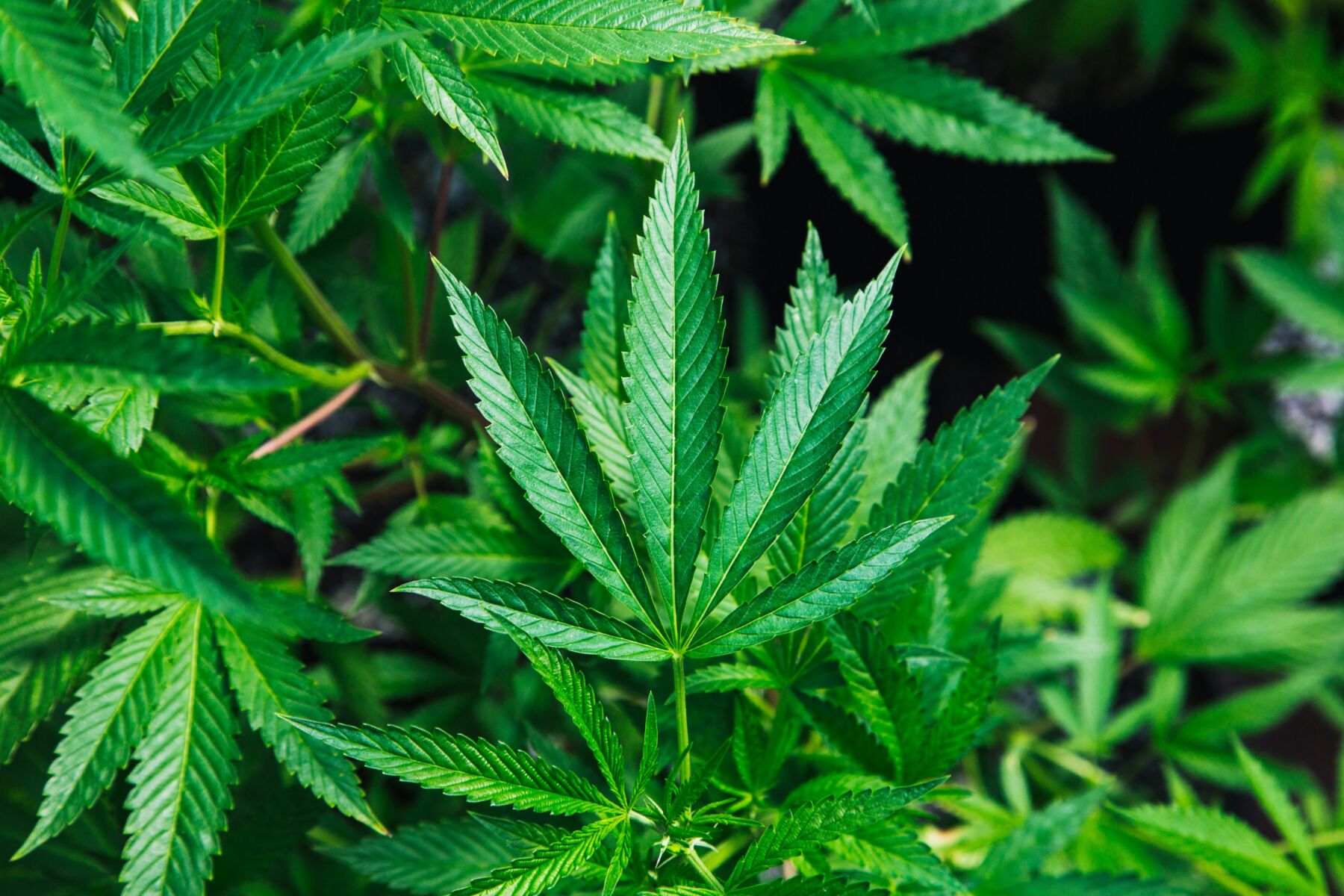
Cannabis enthusiasts and advocates will find Thailand’s efforts towards high quality and safety standards encouraging. By focusing on breeding new strains, making cannabis extracts, and conducting clinical trials, the research centre aims to ensure that the therapeutic potential of medical cannabis is thoroughly explored and effectively utilised.
Although challenges exist, such as strict regulations and the ban on recreational cannabis by 2024, Thailand’s government views medical cannabis as an essential factor for economic recovery. As the industry evolves, it offers potential benefits not just for patients but also for the broader economy, including the medical tourism sector.
Understanding these dynamics will better equip you to guide the expanding medical cannabis view in Thailand. Stay informed about regulatory changes and advancements within the sector to optimise your engagement with this promising area of healthcare.
Other useful resources about medical cannabis in Thailand
- Cannabis events in Thailand 2024
- Buy cannabis in Thailand
- Selling cannabis in Thailand
- Cannabis trends in Thailand 2024
- Health benefits of cannabis tea
- Best Thai cannabis strains for sleep and insomnia relief
- The healing power of cannabis in Thai herbal medicine
- Cannabis Clinic Consultation in Thailand
- Cannabis & athletes: The good, the bad, & the impact
- Guide to getting medical cannabis licenses in Thailand
- Is cannabis the answer to chronic pain?
- Ethical considerations in medical cannabis
- Myth vs. reality: Understanding medical cannabis
- Cannabis uncovered: Mental health benefits and beyond
- A new era for pets: Thailand’s cannabis veterinary solutions
- Is cannabis a secret to ease ageing pain?
- History of Cannabis and Thai Traditional Medicine
- Practical insights to use cannabis in palliative care
- How CBD oil enhances massages and skin health
- How is cannabis is used in ayurvedic medicine
- How CBD aids injury recovery
- Cannabis: A potential ally against long Covid brain inflammation
- Potential of cannabis seed oil for healing burn wounds
Discussions about medical cannabis in Thailand
- Thailand should only allow cannabis in Public hospitals
- Where to find good quality CBD oil
- Why cannabis is going to be banned again
- How to use medical cannabis for arthritis of the neck
- Legal status about medical weed farming
Frequently asked questions about medical cannabis in Thailand
When did Thailand legalise medical cannabis?
Thailand legalised medical cannabis in 2019, making it the first Southeast Asian country to do so. This move was part of a broader effort to embrace the therapeutic potential of cannabis while ensuring strict quality and safety standards.
What are the key challenges in Thailand’s medical cannabis industry?
Key challenges include strict regulations, limited legal accessibility for patients, and the upcoming ban on recreational cannabis by 2024. These factors complicate the full commercialisation and liberal access for private businesses, thus impacting market growth and patient accessibility.
How is Thailand supporting medical cannabis education?
Healthcare professionals in Thailand have expressed a need for formal education on medical cannabis. Thailand is addressing this gap by updating curricula and increasing awareness about the therapeutic benefits and safe usage of medical cannabis.
What impact does medical cannabis have on Thailand’s economy?
The legalisation of medical cannabis is viewed as a potential boost for Thailand’s economy, particularly through medical tourism. By attracting international patients seeking alternative treatments, the country aims to support economic recovery and provide potential benefits for both patients and the broader economy.
What are the safety and quality standards for medical cannabis in Thailand?
Thailand is committed to high quality and safety standards for medical cannabis. This includes careful regulation of the cultivation, production, and distribution processes, ensuring that only licensed products meeting stringent criteria are accessible to patients.
Is recreational cannabis use legal in Thailand?
As of now, recreational cannabis use is not fully legal in Thailand. The law permits private use if the THC content is below 0.2% by weight. However, a complete ban on recreational cannabis is set to be enforced by 2024, limiting its legal accessibility.
Latest Thailand News
Follow The Thaiger on Google News:


























